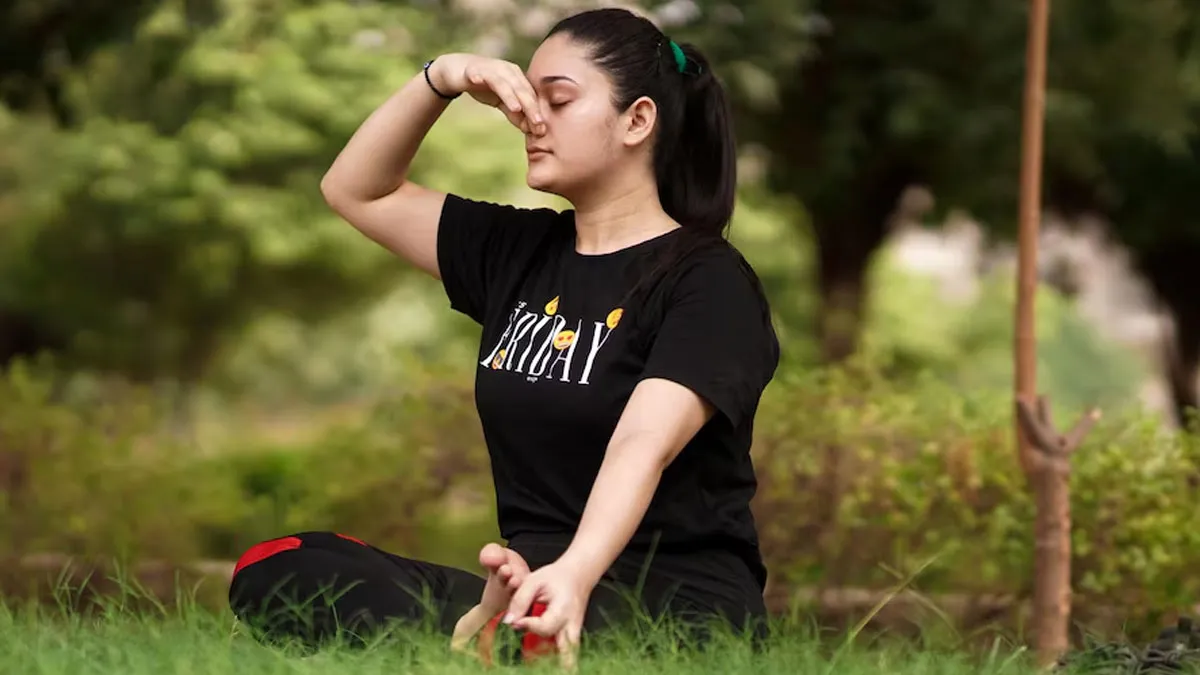
As Delhi battles a choking haze of smog and plunging air quality, everyone is looking for ways to combat the health risks posed by prolonged exposure to air pollution. With air quality reaching the ‘very unhealthy’ category, questions arise about how we can mitigate the effects of toxic air on our bodies. One proposed method is through breathing exercises. But can they really make a difference?
Table of Content:-
For better clarity, the editorial team of Onlymyhealth spoke to the subject expert, Dr Devendra Kumar Singh, Senior Consultant- Respiratory Medicine, Sharda Care - Noida. But let’s understand the problem at hand first.
Understanding The Problem
Delhi's air pollution, largely driven by vehicular emissions, industrial activities, construction dust, and stubble burning, poses a grave threat to respiratory health. According to Dr Singh, prolonged exposure to polluted air can lead to respiratory conditions like asthma, bronchitis, and cardiovascular diseases. “The microscopic pollutants can penetrate deep into the lungs and enter the bloodstream, exacerbating the risks,” he shared.

Also Read: Feeling Bloated? Here’s What You Can Eat Without Stressing Your Stomach
The Science Behind Breathing Exercises
Breathing exercises, also known as pranayama in yoga practices, have long been associated with improving lung capacity, reducing stress, and boosting overall respiratory health. Techniques like diaphragmatic breathing, alternate nostril breathing (Nadi Shodhana), and deep belly breathing aim to strengthen the respiratory system.
“Breathing exercises can help improve lung function by clearing mucus, enhancing oxygen exchange, and increasing lung elasticity. For individuals with compromised respiratory systems, these exercises may provide relief,” said Dr Singh.
However, while breathing exercises can strengthen the lungs and help combat stress caused by air pollution, they cannot eliminate pollutants already present in the body.
Can Breathing Exercises Reduce Pollution’s Impact?
What breathing exercises can do is improve your body’s resilience. According to a study published in the Cyprus Journal of Medical Sciences, controlled breathing exercises can lower stress hormones, which may reduce inflammation triggered by air pollutants. Additionally, deep breathing helps expand the lung's capacity, improving the efficiency of oxygen absorption and potentially reducing the strain of inhaling polluted air.

However, Dr Singh cautioned against seeing breathing exercises as a shield against air pollution. Explaining along these lines, she said, “While such practices are beneficial for overall respiratory health, they do not prevent pollutants from entering your system.Once inhaled, the toxins from polluted air can still cause inflammation and oxidative stress in the body.
Also Read: Can Immunity Boosters Help Combat Current Air Pollution? Here's What You Need To Know
Expert-Approved Breathing Exercises You Can Try
If you live in a high-pollution area, Dr Singh suggested these exercises can enhance your respiratory health and promote relaxation:
- Diaphragmatic breathing
- Nadi shodhana (Alternate nostril breathing)
- Kapalabhati (Skull-shining breathing)
- Box breathing
Other Preventive Measures To Reduce Air Pollution Health Risks
While breathing exercises have their benefits, experts emphasise a multi-faceted approach to minimise pollution’s impact:
- Wear masks
- Use air purifiers
- Stay hydrated
- Incorporate an antioxidant-rich diet
Bottomline
Breathing exercises alone cannot neutralise the harmful effects of air pollution, but they are an effective approach for strengthening lung capacity, managing stress, and improving respiratory health. As Delhi grapples with worsening air quality, taking these proactive steps to safeguard your health will surely help you and your family.
Also watch this video
How we keep this article up to date:
We work with experts and keep a close eye on the latest in health and wellness. Whenever there is a new research or helpful information, we update our articles with accurate and useful advice.
Current Version
